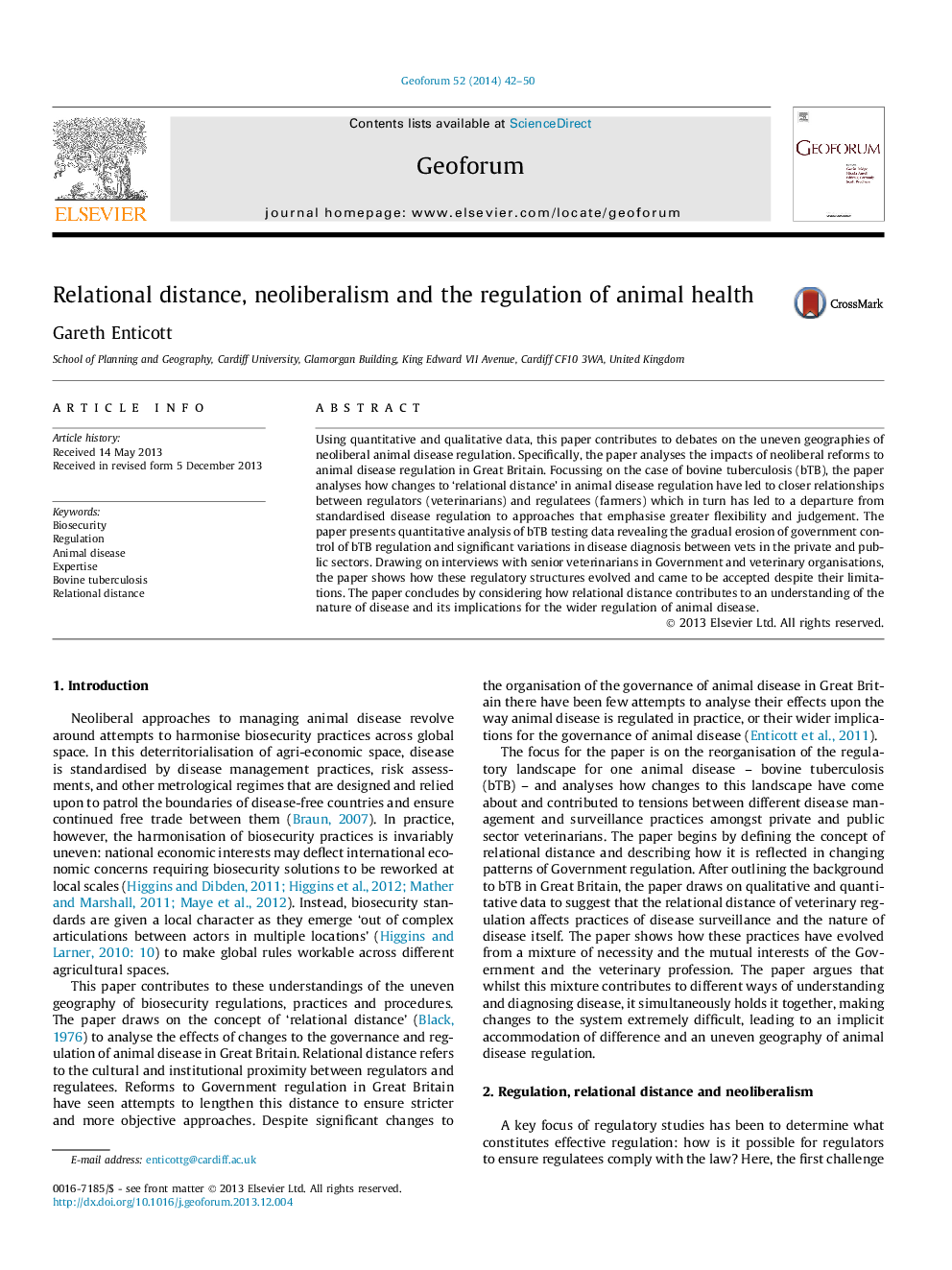| Article ID | Journal | Published Year | Pages | File Type |
|---|---|---|---|---|
| 5074067 | Geoforum | 2014 | 9 Pages |
Abstract
Using quantitative and qualitative data, this paper contributes to debates on the uneven geographies of neoliberal animal disease regulation. Specifically, the paper analyses the impacts of neoliberal reforms to animal disease regulation in Great Britain. Focussing on the case of bovine tuberculosis (bTB), the paper analyses how changes to 'relational distance' in animal disease regulation have led to closer relationships between regulators (veterinarians) and regulatees (farmers) which in turn has led to a departure from standardised disease regulation to approaches that emphasise greater flexibility and judgement. The paper presents quantitative analysis of bTB testing data revealing the gradual erosion of government control of bTB regulation and significant variations in disease diagnosis between vets in the private and public sectors. Drawing on interviews with senior veterinarians in Government and veterinary organisations, the paper shows how these regulatory structures evolved and came to be accepted despite their limitations. The paper concludes by considering how relational distance contributes to an understanding of the nature of disease and its implications for the wider regulation of animal disease.
Related Topics
Social Sciences and Humanities
Economics, Econometrics and Finance
Economics and Econometrics
Authors
Gareth Enticott,
